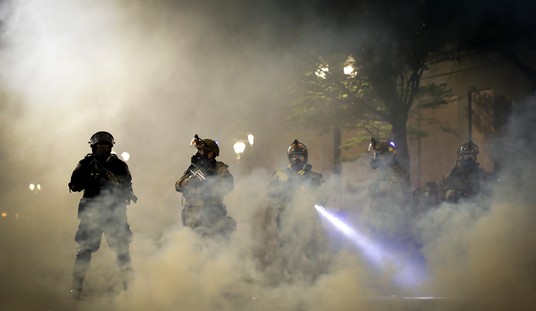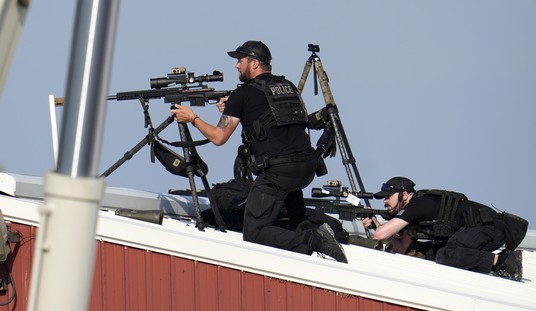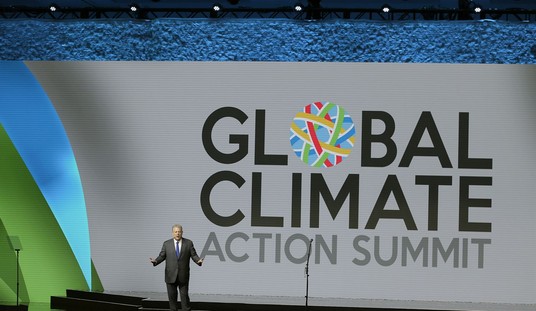Michael Ian Black, an actor who makes no bones about his progressive political philosophy on Twitter, has written an op-ed for The New York Times that is an honest attempt to examine his belief that the leading cause of tragedies like the one in Parkland are because American boys are “broken”.
He wrote his thoughts on the matter on Twitter following the shooting that claimed the lives of 17 students and faculty at Marjory Stoneman Douglas High School on Valentine’s Day.
Deeper even than the gun problem is this: boys are broken.
— Michael Ian Black (@michaelianblack) February 15, 2018
The social media site, as is the way of these things today, lit up with responses to his tweet, with many agreeing, and many others vehemently disagreeing.
Black then took his thoughts to an op-ed in a high profile news outlet (albeit on that almost certainly agrees with him on the matter).
But the op-ed itself entitled, “The Boys Are Not Alright,” is better than the original tweet — it’s a more thoughtful exploration of his premise that “it’s no longer enough to ‘be a man'” and that men and society are suffering for that.
Or, as he puts it, “it’s killing us.” And, he says, he wants to help.
Too many boys are trapped in the same suffocating, outdated model of masculinity, where manhood is measured in strength, where there is no way to be vulnerable without being emasculated, where manliness is about having power over others. They are trapped, and they don’t even have the language to talk about how they feel about being trapped, because the language that exists to discuss the full range of human emotion is still viewed as sensitive and feminine.
Men feel isolated, confused and conflicted about their natures. Many feel that the very qualities that used to define them — their strength, aggression and competitiveness — are no longer wanted or needed; many others never felt strong or aggressive or competitive to begin with. We don’t know how to be, and we’re terrified.
In the interest of helping him, despite disagreeing almost totally with his assessment above that there is no way for men and boys to be vulnerable without being emasculated, here are a few thoughts:
First, that section block quoted above is only a perspective on American manhood. And perspectives aren’t necessarily true. There are many young men today who have very little problem being both masculine and sensitive. The problem is they are told — quite frankly, Mr. Black, by you and many of the liberal thinkers you no doubt associate with — that they can’t be both.
They are routinely hammered for “mansplaining” or “manspreading” or enjoying hunting with firearms or appreciating a beautiful woman. You are correct that they are shamed for much of what makes them men. But what you fail to understand is they are shamed by the very ideas you promote. And then told that those shameful things are the only things that define them. You, and most every other progressive, fail to see past the masculinity. And that, sir, is not a problem with them. It is a problem with the small-minded culture of progressivism.
Second, you say in your op-ed that the “man who feels lost but wishes to preserve his fully masculine self has only two choices: withdrawal or rage.” This is patently false. And you even admit it in the very next paragraph before doing a 180 degree turn again and blaming all boys.
To be clear, most men will never turn violent. Most men will turn out fine. Most will learn to navigate the deep waters of their feelings without ever engaging in any form of destruction. Most will grow up to be kind. But many will not.
We will probably never understand why any one young man decides to end the lives of others. But we can see at least one pattern and that pattern is glaringly obvious. It’s boys.
You are correct: most men never turn violent. So that cultural pandemic of lost boys is, even to you, an unlikely scenario.
Which brings us to third — the Parkland shooter was ONE boy. One boy who had a lot of problems, unique to him, in the home; and very likely with his mental health, and probably with behavioral control, and possibly with medication, and definitely with a community of law enforcement that failed him and his classmates.
He is tragic and what he did is reprehensible, but he is not representative of all boys. Not even remotely.
In conclusion, if you really want to help boys Mr. Black — and I believe you do and I commend you for the interest — the first thing to do is to stop believing the worst of them. Stop thinking they carry the same evil that eventually took up residence in the head of the broken boy in Florida. Stop being so pessimistic as to assume masculinity is somehow less than natural and we’ve evolved beyond its “outdated” modes of expression. And stop acting as though all men have trouble being the proverbial Renaissance man who can fight a war, hunt for dinner, sexually appreciate women, and still be sensitive fathers and friends, artists and leaders.
You say you believe in boys. Start acting like it.













Join the conversation as a VIP Member